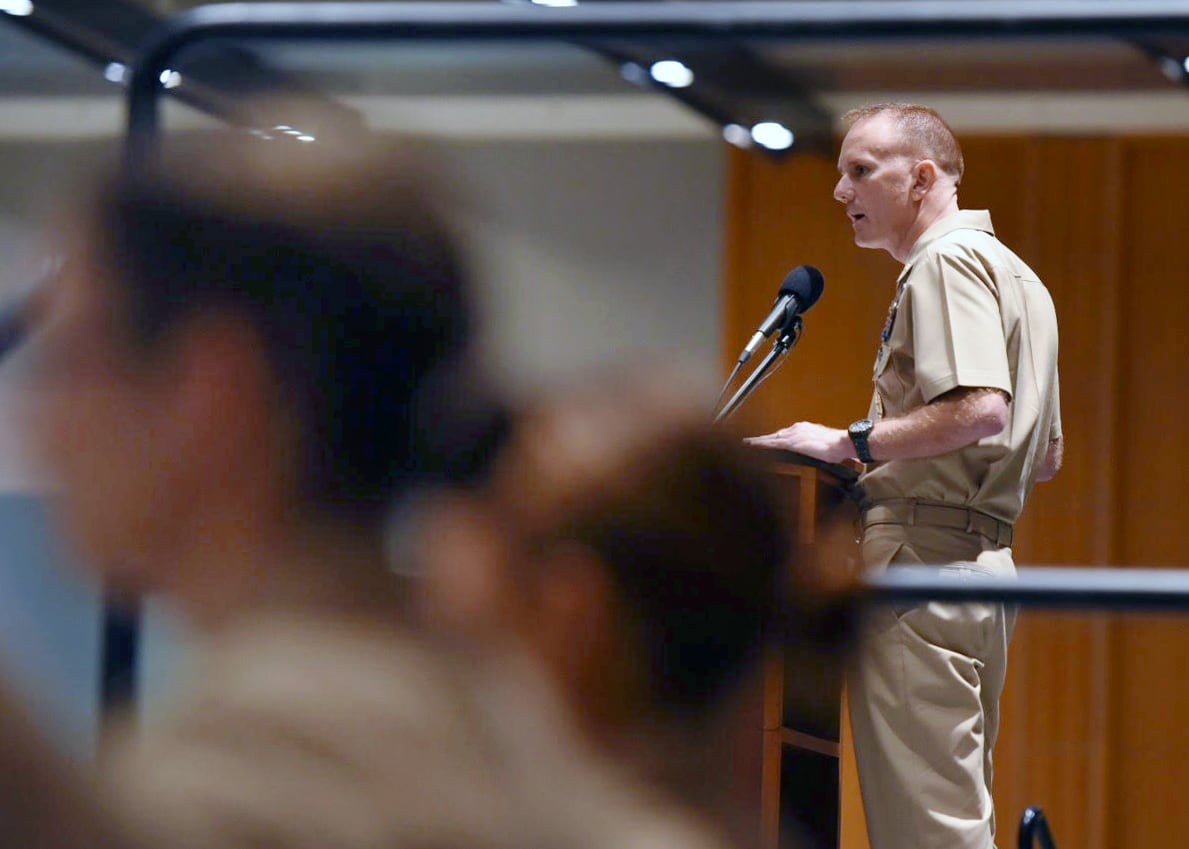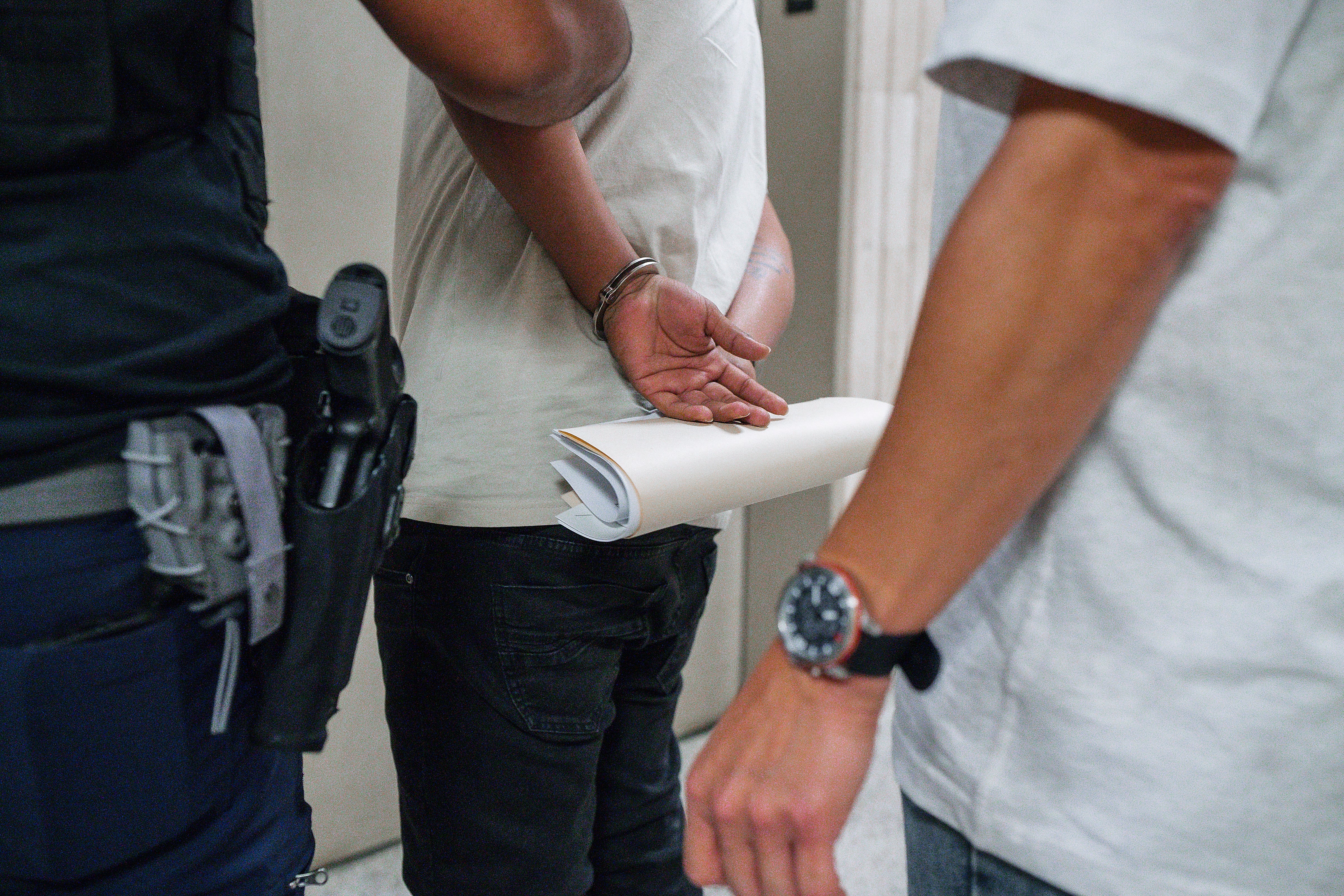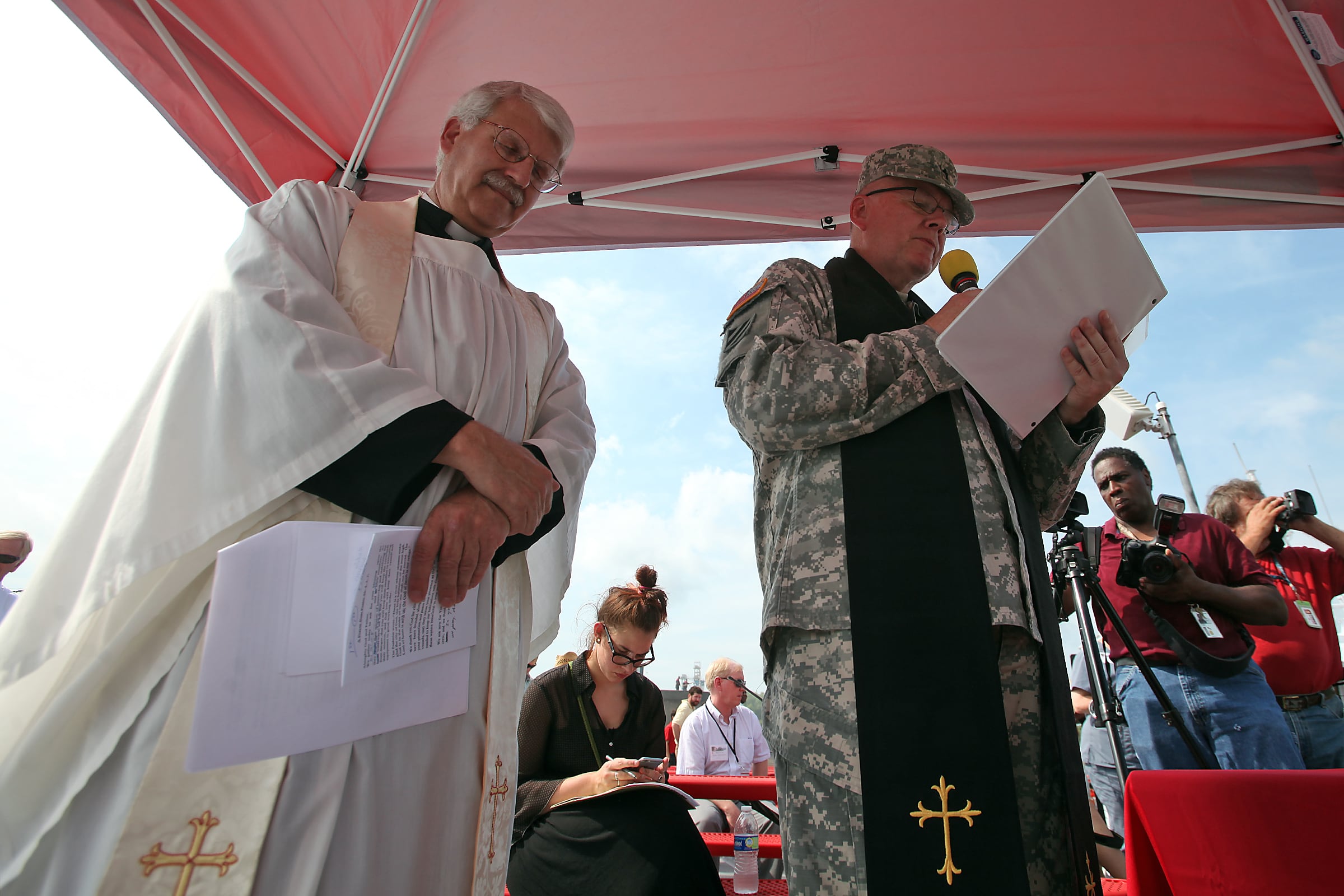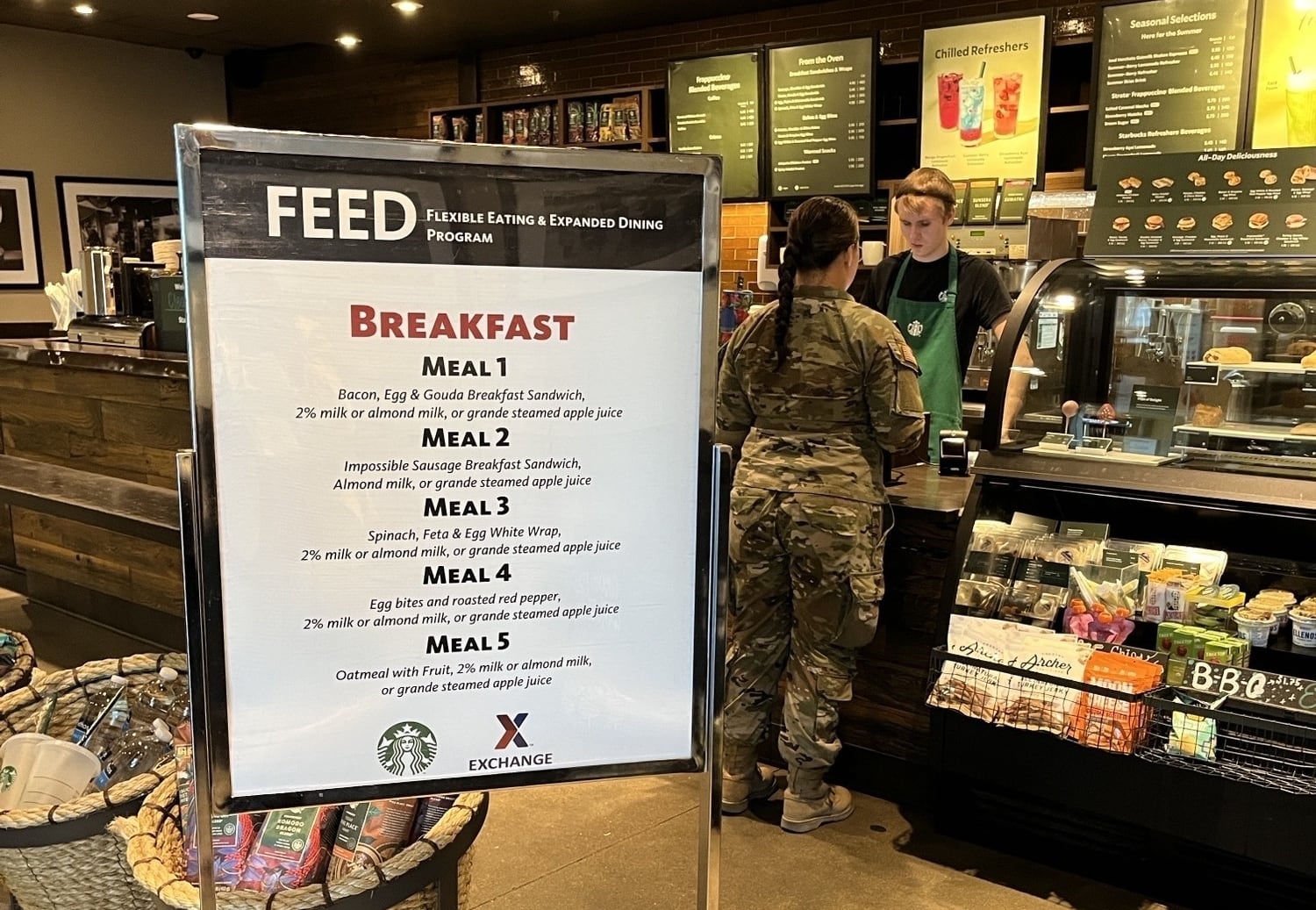First class petty officers will no longer be required to participate in the training program for future chiefs, known as CPO-365 Phase I.
Master Chief Petty Officer of the Navy (SG/IW) Steven Giordano said he is ending the three-year-old policy that made participation mandatory, and will instead give E-6 sailors who have not yet been selected to advance a chance to opt out of the Phase I, which encompasses September through July.
But for those sailors selected for chief petty officer in the summer, participation in the Phase II portion of the program will remain a requirement. That's the final training leading up to the Navy-wide pinning ceremonies for new chiefs, held annually in mid-September .
Giordano does not expect a mass exodus from the Phase I program because, he says, Navy commands should be operating their local Phase I programs in a way that makes sailors want to opt in. The change is designed in part to give sailors more autonomy over their career decisions, he said.
"If we educate, develop and train our sailors to be mature people who can make their own decisions, we have to allow them to make those decisions," Giordano said in a recent interview with Navy Times.
"And if they choose not to be part of this, then that's the decision they make. But I think if we get this thing right, then you'll probably have more sailors than not continuing to be part of these processes."
And if a sailor does opt out, that doesn't mean the chiefs mess should just let them go, either.
"If you have a first class petty officer who says, 'I choose not to be part of this,' you don't just sit there and say 'OK, don't be a part of this,'" Giordano said.
The CPO-365 program "is about talking to that first class petty officer who isn't seeing the value of being in those discussions, pulling them aside and doing a one-off. And if we're truly doing this thing right, they'll realize the benefits of being there."
Giordano says that CPO-365 has proven to be a great success navy-wide in the development of the Navy's chiefs mess, and he attributes success to prior MCPONs Rick West and Mike Stevens for creating the program and keeping it current.
Allowing sailors to make their own decisions about the program will help command leaders to gauge a sailor's initiative, a characteristic Giordano says is critical in the type of leaders the Navy needs.
"Just this mechanism alone allows commanding officers and senior enlisted leaders to better evaluate their sailors on things like being people of initiative," he said.
But Giordano won't go so far as to say whether commands should penalize sailors on their annual performance evaluations if those sailors opt out of the program. "I'm not going to get into telling COs how to evaluate their sailors," he said. "That's a hard thing for anyone to work through as a leader and make sure we're identifying the right people with the right potential to be that generation behind us."
Giordano says he didn't come up with changes to the program alone. Instead, his guidance is the product of collaboration during nine months on the job while getting his sea legs under him.
"I don't do anything in a vacuum," he said. "You are probably well aware that everywhere I go, I've made it a point to sit down with chief petty officers at every level. I've taken all that in as well as the input from the fleet master chiefs who hear from the senior enlisted leaders out there and who are responsible for CPO-365 and held accountable by their COs for that process."
Mark D. Faram is a former reporter for Navy Times. He was a senior writer covering personnel, cultural and historical issues. A nine-year active duty Navy veteran, Faram served from 1978 to 1987 as a Navy Diver and photographer.





